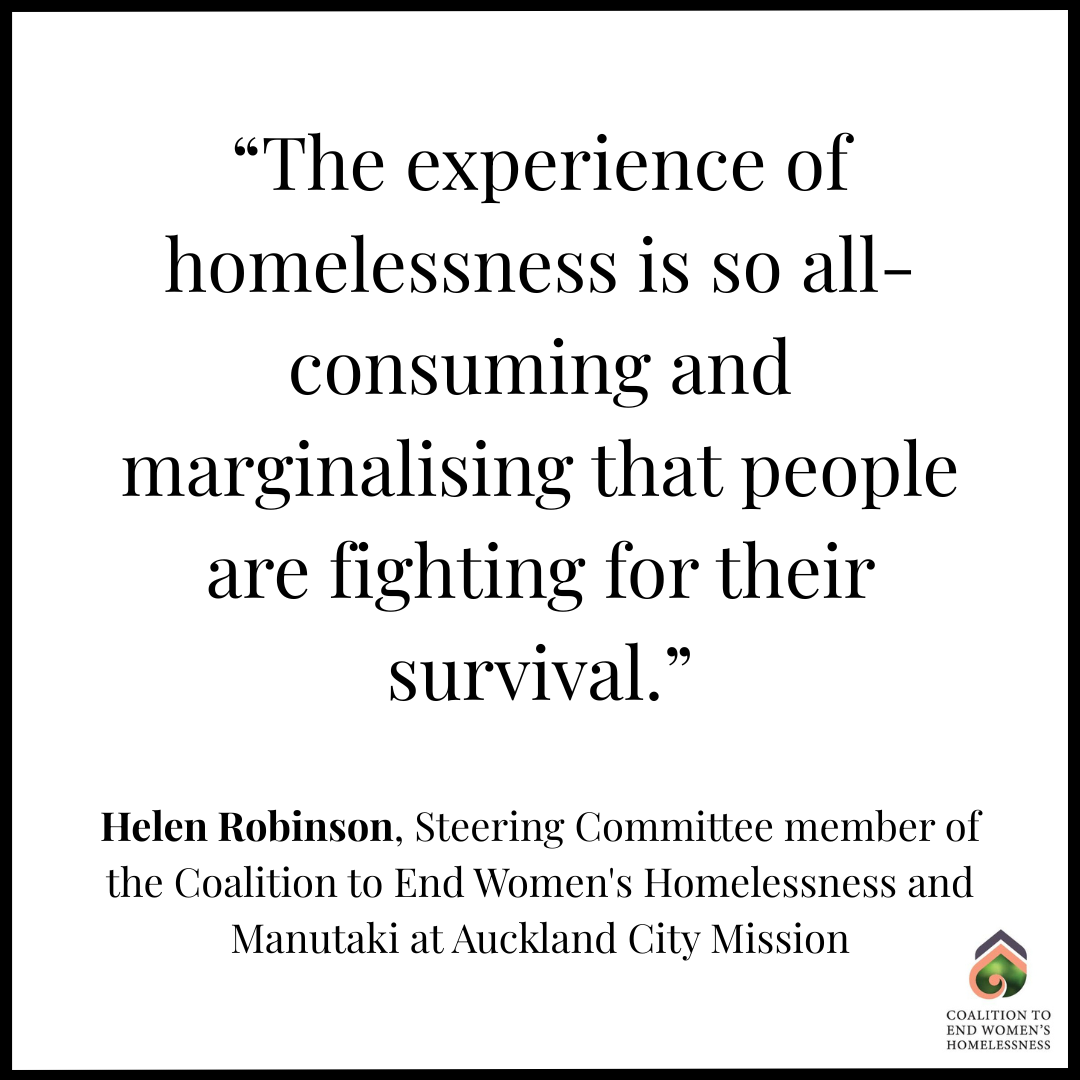The Post: Helen Robinson calls for urgent action on women’s homelessness
Yesterday, Helen Robinson, Manutaki at Auckland City Mission and a Steering Committee member of CEWH, presented a sobering and urgent submission to Auckland Council’s Community Committee.
Her call to action, covered by senior reporter Amelia Wade in The Post, could not have come at a more critical time.
“Until the current emergency housing policies change, all we will see in our country is a growth in street homelessness,” Helen said as she addressed the committee.
A crisis growing in plain sight
Rough sleeping in Auckland has nearly doubled in just eight months, with at least 809 people now unsheltered across the city. This stark figure doesn’t even capture the full extent of the crisis, especially for women, whose experiences of homelessness are more often hidden from view.
Helen shared insights from Ngā Ara ki te Kāinga: Understanding Barriers and Solutions to Women’s Homelessness in Aotearoa, the CEWH’s groundbreaking research report. The data paints a clear picture:
Women make up 52% of the severely housing-deprived population in Aotearoa, according to Stats NZ Housing in Aotearoa: 2025.
That’s well above the OECD average of 22%, making women’s homelessness in New Zealand among the highest in the developed world.
Auckland is the epicentre, with 46% of homeless women in Aotearoa living in the city.
Helen urged the council to push for a gender-responsive homelessness strategy. At present, there is none.
“This is madness and our people are suffering … at the moment [women] don’t officially exist as a cohort,” she said.
The gendered nature of homelessness
Victoria Crockford, CEWH Project Director says that without gender-disaggregated data and targeted action, women will continue to fall through the cracks:
“Our research, Ngā Ara ki te Kāinga, and the subsequent Stats NZ report confirmed that women represent just over 50 percent of those experiencing homelessness, which is high by international standards. However, women's homelessness is more hidden and is very difficult to capture through administrative data - and housing data broken down by gender is sometimes not being collected or published at all,” Victoria says.
Women’s homelessness often looks different to men’s - couch surfing, sleeping in cars or garages, staying in unsafe or overcrowded housing, or remaining with abusive partners out of necessity. This "hidden homelessness" rarely shows up in official figures.
“While technically 'shelter', these houses are not homes - they are often dangerous, precarious, and hugely negative for physical and mental health,” Victoria says.
Why data matters
Without accurate data, policy responses miss the mark. CEWH is calling for publicly available, gender-disaggregated housing data that recognises the realities of women's homelessness in all its forms.
“We’re encouraged by great work going on in the community and Māori housing sectors, such as the Homelessness Data Project, and we firmly believe the government can’t absolve responsibility to ensure quality, publicly-available, gender-disaggregated data,” says Victoria.
A call to action
The message from Helen Robinson is simple and powerful: “Change those policies.”
“Every person in New Zealand deserves access to shelter immediately and to the appropriate support that they need as quickly as possible,” Helen said to Auckland Council’s Community Committee.
As the Council moves to send another letter to central government, now is the time to ensure women’s experiences are no longer made invisible in the response to homelessness.
Read the full story by Amelia Wade in The Post here

